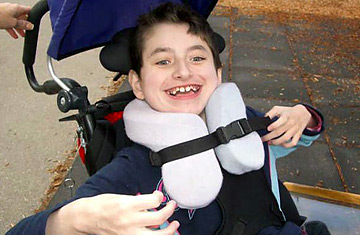
The doctors who agreed to an experimental treatment for a severely
disabled girl thought there were clear
medical benefits to keeping her small. Autopsy the doctors’ argument,
and you find that they concluded they could remove Ashley’s uterus and
breast buds because she’d be better off without them; they could keep
her short because, since she’ll never have a job or a romance, she’d
not suffer the social consequences of smallness. “To those who say she
has a right to develop and grow,” argues Dr. Daniel Gunther, “Ashley
has no concept of these things.” But he is talking as a scientist; the
philosopher uses different tools. Just because autonomy doesn’t show
up on an X-ray doesn’t mean it can’t be harmed by a scalpel. And if
rights are inalienable, they exist whether the patient is aware of
them or not.
Looking back on the debate within the Seattle Children’s Hospital
ethics committee, the doctors admit that there was an instinctive,
emotional ingredient in the decision to proceed with hormone
treatments and surgery. “I think in the end it was the obvious bond
and love that exists between Ashley and her parents,” Gunther says,
“that convinced them this was the right thing to do.”
That argument sends disability rights advocates around the bend.
“Benevolence and good intentions have been among the biggest enemies
of disabled people over the course of history,” says Arlene Mayerson,
a leading expert in disability rights law, who like many critics feels
intense sympathy for these parents. “Many things that were done under
a theory of benevolence were later seen as wrongheaded violations of
human rights. ” Medicine’s role is to relieve pain and improve
function, but Ashley was not sick, and the treatment was untested; do
we really want to start bending the rules in the case of the disabled
just for the promise of some benefit in the future, advocates ask?
That’s not healing, it’s gambling.
Ashley may be an extreme case; but she is a terrifying precedent.
Critics note that for brain-damaged children, development can come
very, very slowly — so deciding when she’s only six to change a child’s
body irreversibly can amount to a medical form of identity theft.
Frequent touch is indeed important; but is it really so much harder to
hug someone who is 5’6,” or bring her to the table at dinnertime?
Turning people into permanent children denies them whatever subtle
therapeutic benefit comes from being seen as adults. “I know they
love their daughter,” says Julia Epstein, communications director for
the Disability Rights Education and Defense Fund, and
the mother of a disabled child. “But they refer to her as the pillow
angel. I know that’s meant to be a sweet term, but it’s terminally
infantalizing.” Her organization issued a statement affirming that “we
hold as non-negotiable the principle that personal and physical
autonomy of all people with disabilities be regarded as sacrosanct.”
With the right information and support, disability rights advocates
believe, there is no need for a medical solution to an essentially
social problem.
Doctors watching it all from the sidelines note that there are serious
medical questions at stake. For one thing, there is no way to know the
effect of high-dose estrogen on such a young girl. “Before moving
forward wholesale, we need to study it carefully,” says Dr. Jeffrey
Brosco, an associate Professor of Pediatrics at the University of
Miami, who wrote a dissent in the journal where the case was
published. “Right now it is truly an experimental treatment.” But he
is sure there will be more interest: just last week a family he treats had
to put their 19-year-old son into a group home, because he had become
too big and aggressive for them to care for anymore. “They don’t have
the money for a personal aide at home,” he says, noting that in
Florida alone there are 16,000 people on the waiting list for home
services.
In fact one thing everyone could agree on was that the case
highlights the lousy state of home care in this country. “The web of
support for families who really want to care for their family member
is uneven and sometimes tattered,” says Thomas Murray, President of
the Hasting Center, an independent bioethics research institute. “If there were abundant support to
help care for a fully grown son or daughter, then people might not be
pushed to a radical medical option like this.”
Those troubled by the Ashley treatment as a medical fix for a larger
social problem are watching the direction that Britain is
taking. The Royal College of Obstetricians and Gynecology has proposed
that doctors be allowed to kill the sickest infants — which is already
legal in the Netherlands. “A very disabled child can mean a disabled
family,” the college wrote to the Nuffield Council on Bioethics, and
urged that they “think more radically about non-resuscitation,
withdrawal of treatment decisions… and active euthanasia, as they are
ways of widening the management options available to the sickest of
newborns.”
At least in Ashley’s case, however much the doctors debated the
proper “management options,” they all agreed that her life had a value
worth fighting to preserve. But as a standard, that’s a pretty low bar
to set.